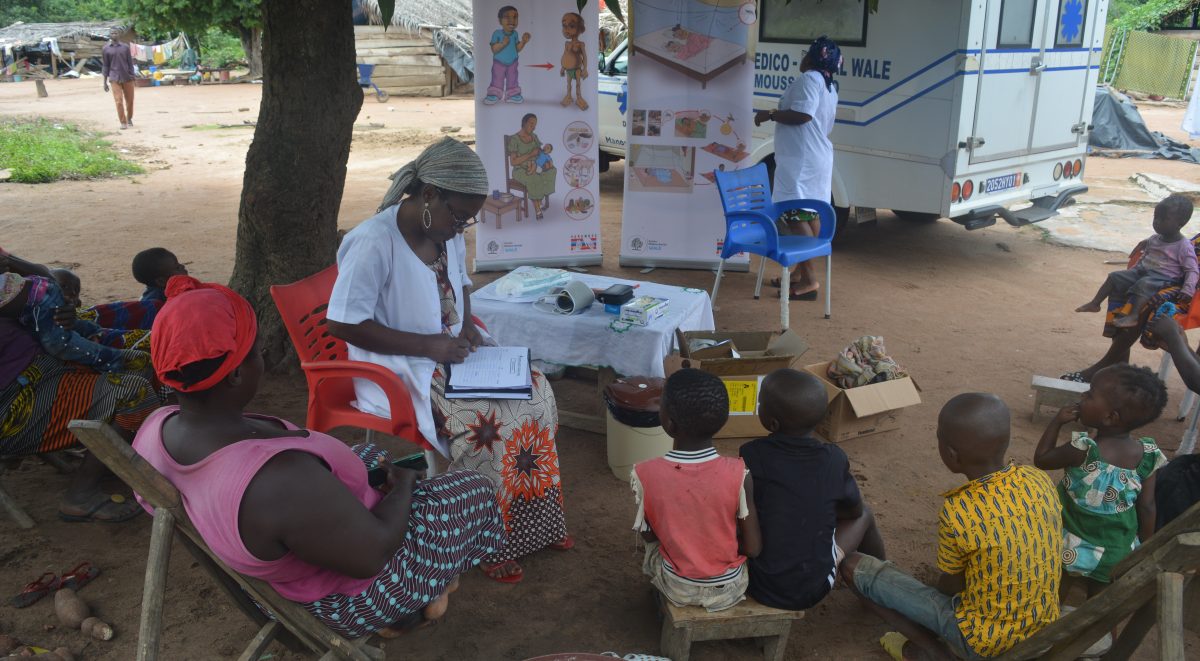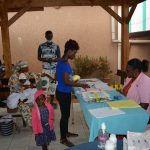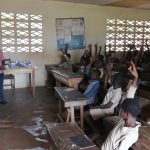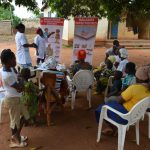
The Walé Health Centre in Côte d’Ivoire has completed its training and awareness-raising programme for communities in the Bélier Region, located in the central part of the country. Thanks to contributions collected by Harambee, it was possible to reach over 700 people: mothers, children and health workers.
According to a recent World Health Organisation* Report on Health in Africa, significant progress is being made in dealing with the enormous challenges that the Region faces on a daily basis and, above all, signs across the continent show that internal tools are being adopted to solve health problems.
Obstacles, however, remain: lack of adequate financial resources, shortage of health personnel, insufficient training, fragile infrastructure, with a serious impact on hundreds of millions of people, especially mothers and children. Africa still accounts for 25% of the world’s burden of diseases, most of which are preventable.
In Côte d’Ivoire, for example, 80,000 children under the age of five die each year from preventable diseases if nutritional and sanitary conditions were better.
To respond to the persistent shortages, the Walé Medical Centre offers health care, at an affordable cost, to the most fragile population but, at the same time, ‘it is necessary to go beyond curative medicine, adapting a more integrated approach that promotes health through information and prevention‘ while waiting for the right reforms to be implemented to guarantee access to health services for all.
And precisely to meet this need, Harambee helped to implement the training programme aimed at both health personnel and the population, including mothers, teachers, pupils and students. Walé’s objectives include facilitating access by the most vulnerable to a health facility, reducing self-medication and delays in using health facilities in case of illness, and transferring skills in nutrition and prevention of certain diseases.
“The most widespread health problems are due to food insecurity but also to widespread ignorance. Due to a lack of both financial resources and adequate information on hygiene and prevention, patients postpone recourse to health care until their condition has worsened to the point where it is very difficult, sometimes impossible, to intervene effectively.”



What has been achieved
A training programme on women’s leadership in community health: 12 sessions for 25 women who in turn will be able to train other community members. “In addition, we helped these women identify and address common childhood ailments such as fever, anaemia, digestive disorders, respiratory disorders.”
473 pupils received training on hygiene practices in schools and “We purchased hygiene materials and equipment to facilitate practice.
10 theoretical and practical sessions were held for 193 women on issues concerning nutritional deficiencies and malnutrition “We were able to distribute milk to HIV-positive mothers“.
In addition, the skills of 10 medical and paramedical staff members were strengthened to improve the quality of services offered to patients. In addition, more than 1,000 medical consultations were carried out for the most needy people in rural areas: “This activity gave us so much joy because we know that we were able to save so many lives“.
The project took place between December 2021 and November 2022 (with support of 20,000 euro), but the training provided, together with Walé’s relentless work, will ensure its sustainability over time.
YOU TOO CONTRIBUTE TO MANY FAMILY-FRIENDLY INITIATIVES IN AFRICA!
*The African Regional Health Report: The Health of the People
